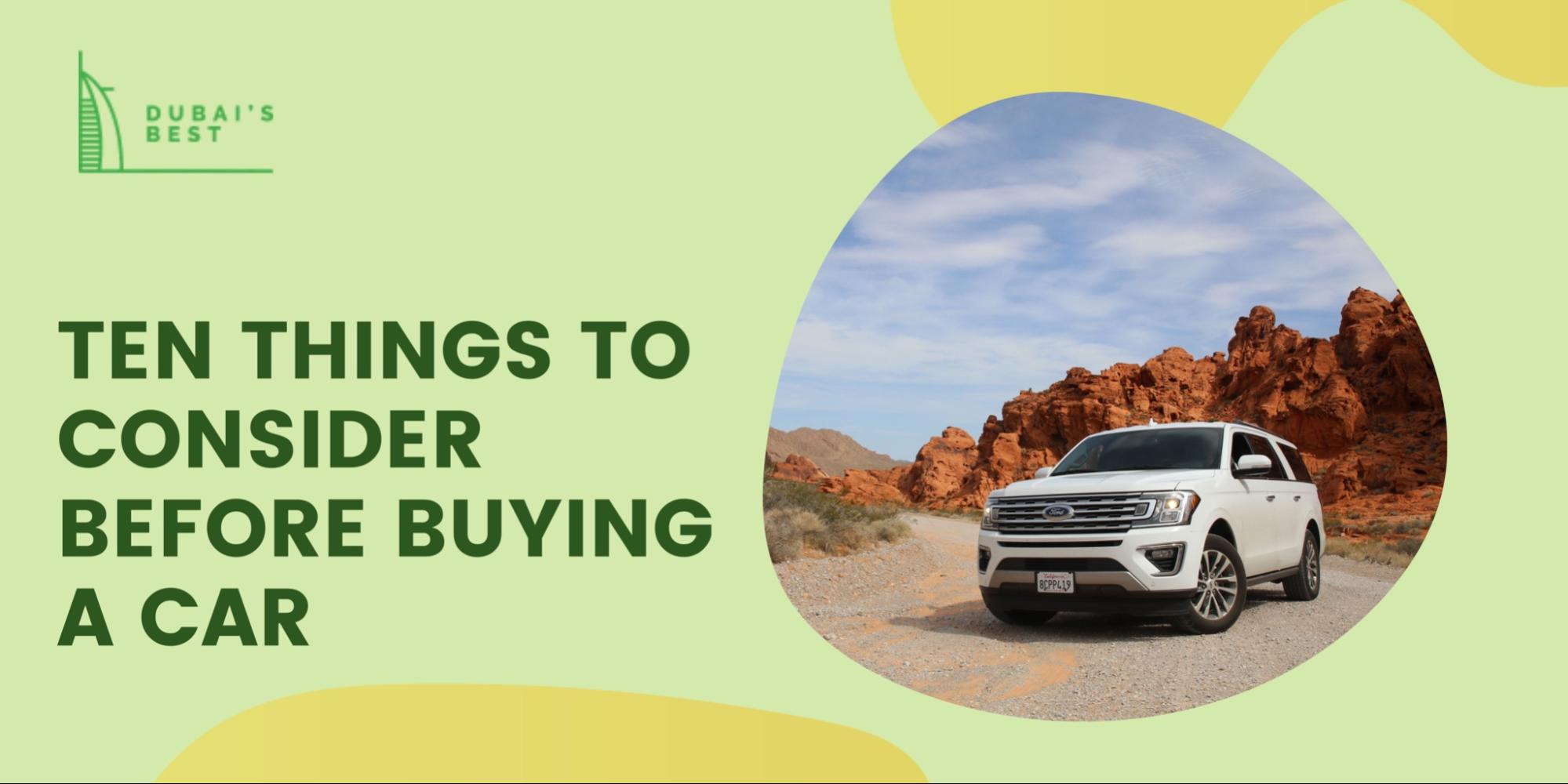Ten Things To Consider Before Buying A Car
Cars are expensive. Buying one can eat up most, if not all, the majority of the savings you’ve piled up over the years.
Choosing the right one can involve a lot of research and time. You might also miss some details that you should consider in picking a car.
Here are ten points you need to look at before buying your dream automobile!
1. The Kind of Car That You Want
Knowing what type of automobile you wish to purchase can help you budget or estimate the money you will be spending on obtaining one.
If you are working with a car loan, knowing whether or not you’ll be getting a regular or a luxury car can also help you pick the appropriate loaning service.
Aside from that, you need to also determine if your car can accommodate your needs. Do you want a vehicle that has a large seating capacity?
Try taking note of where you will use your dream car after purchase. After that, list also the features you want to see in one, such as gas mileage, safety, and more.
2. Know Your Credit Score
A credit score is a number that determines how worthy a client would be in the eyes of banks or other financial borrowing institutions.
Getting a loan (row 125 – personal loans Dubai) could help you shoulder the burden of paying a huge amount needed for a car.
You would want to get a very high credit score to grab a good car loan for your dream vehicle. Accountants and advisors can help you determine the number and also assist you in improving or fixing your credit score.
3. Scout For Good Loan Options
There are auto loans being offered in banks and other financial institutions such as credit unions. Try to get more than two potential loans that you might get so you can do a comparison to find what works for you the best.
Having a loan before visiting a car dealer can help you bargain for the final price of your dream car!
4. So, How Are You Going To Pay For It?
Usually, car dealers have a specific payment scheme for their products. Some require you to put down a specific amount of money before you can actually use your auto loan.
Here’s the advantage of having a downpayment: your loan would be lessened. Unfortunately, that means you do have to shell out your own cash in advance.
Others would just rely on the loan you’re using.
It’s important to understand how you’ll be paying your car loan per month and other fees so you can budget properly. We recommend knowing the loan amount, the annual percentage rate, and for how long you are going to pay the institution.
Try to also seek some advice as well, from friends, families, or professionals on what would be the best deal for you without breaking your wallet.
5. What’s Your Car’s Trade-In Value?
This is more of an optional point. More of a situational one, if you will.
If you have an old car you want to trade-in as part of a payment to your new vehicle, we recommend knowing how much it’s worth. This is to ensure that you won’t have trouble negotiating with the salesman.
Should you and the dealer agree to have a trade-in, make sure to properly notarize all the official documents related to your previous car. This is to avoid any legal entanglements in the future.
We honestly just recommend selling the car on your own– you have a bigger chance of making more money that way. That is if you have the time and the patience to do so.
6. New Or Used Car?
Aside from knowing what kind of car you want, another important decision to make is to know whether or not you want a brand-new car.
There are certain advantages and cons to getting each. For example, a new car would be much more updated in terms of parts and services, but it would be expensive.
Getting a used car (row 143 – used cars Dubai) means that you will have to deal with potential problems due to its previous use or its age– but it’s cheaper.
7. Are you buying or leasing?
These two options each have their own pros and cons. Buying a car means that you have no limitations in terms of mileage or how much you can fully use it.
However, it might be difficult for you if you have to move across seas, as importing or shipping fees get very expensive.
Leasing, on the other hand, can be restrictive. There is a limit to how many miles you can go before hitting the “additional fees” threshold.
But, you can easily just give the car back should you move away.
8. Car History
Whether new or old, cars have history. For new cars, this could pertain to information or reviews about other buyers getting the same model.
For used cars– literal history. If possible, try asking around for the problems that the previous owner encountered in using a vehicle you want to buy.
Try researching about a model’s durability, how many people have checked them in for repairs, or if they were involved in any accidents.
This can help you prepare for what’s to come should you buy a car– or convince you to pick another option!
9. Look Up Some Car Dealers!
Research the dealerships you want to engage with. Check out some of the reviews online so you know what you will be facing on the day you decide to get one of the cars they are selling.
Take note of the rates they provide and other customer services they offer.
10. Now, Go Get That Car!
We recommend sticking to the model that you want. This means you’ve already prepared a budget for it and you’ve mentally prepared yourself to some extent, on how you will pay and maintain it.
Get ready to negotiate the final sale price with a salesperson. Good luck!
Related Articles
- Car Dealerships (row 174 – car dealerships)
- Buying Cars in Dubai (row 160 – buy car dubai)
- Car Auctions (row 175 – car auctions dubai)

